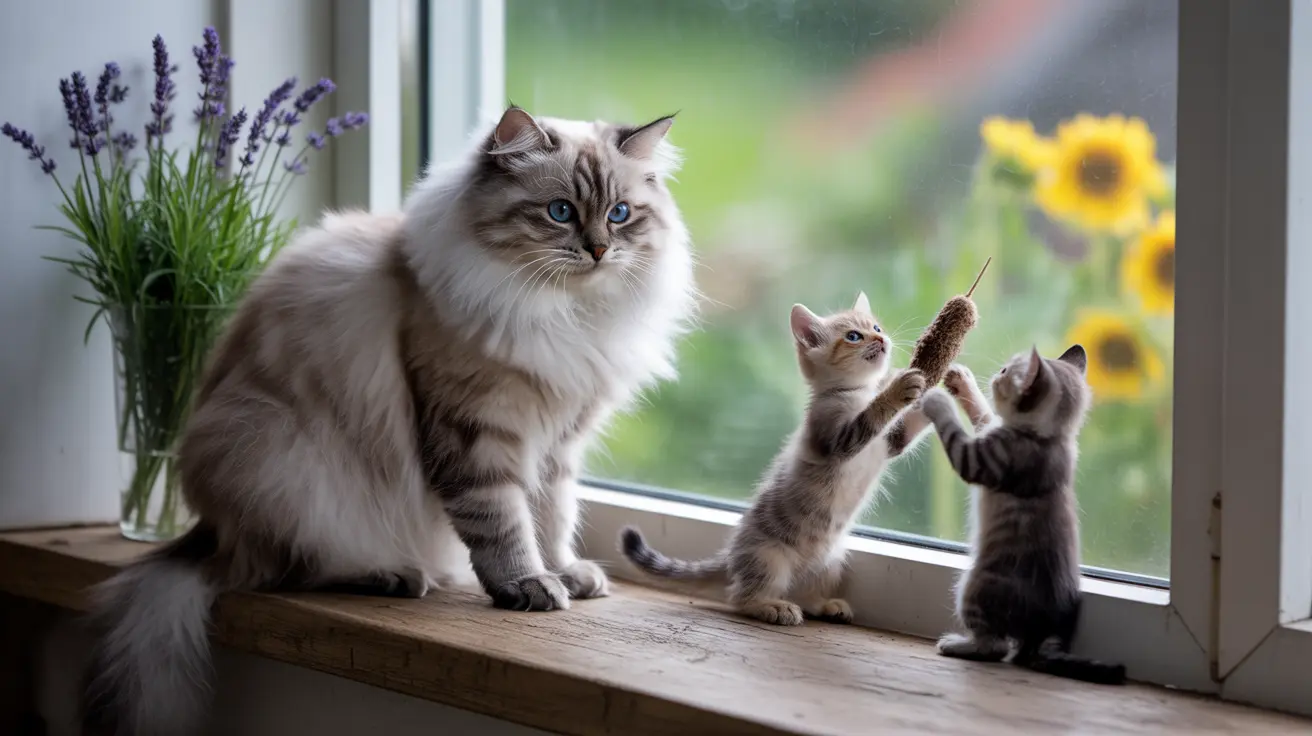If your previously peaceful cats have suddenly started fighting, you're not alone. Unexpected aggression between household cats can be distressing for both pets and owners. Understanding why cats begin fighting and how to address these conflicts is crucial for maintaining harmony in your multi-cat household.
In this comprehensive guide, we'll explore the common causes of sudden cat fights, identify warning signs, and provide effective solutions to restore peace between your feline friends.
Common Triggers for Sudden Cat Fighting
Medical Issues and Pain
Unexplained aggression often stems from underlying health problems. When cats experience pain or discomfort, they may become irritable and lash out at their companions. Common medical triggers include:
- Dental disease
- Arthritis
- Urinary tract infections
- Thyroid problems
- Injuries or wounds
Environmental Changes and Stress
Cats are sensitive to changes in their environment. Even minor alterations can trigger territorial disputes and aggressive behavior:
- Moving to a new home
- Rearranging furniture
- Introduction of new pets or family members
- Changes in daily routines
- Construction or renovation noise
Signs of Serious Cat Fighting
It's essential to distinguish between play fighting and serious aggression. Real fighting typically involves:
- Loud growling and hissing
- Flattened ears and puffed-up fur
- Aggressive chasing and cornering
- Biting with intent to harm
- Scratching with claws fully extended
- One cat clearly trying to escape
Immediate Steps to Take
Separate the Cats
When serious fighting occurs, immediate separation is crucial. Provide each cat with:
- Their own room or space
- Separate food and water bowls
- Individual litter boxes
- Comfortable bedding
- Familiar toys and scratching posts
Create a Calm Environment
Reduce stress by:
- Using pheromone diffusers
- Maintaining consistent feeding schedules
- Providing quiet spaces for each cat
- Minimizing exposure to outdoor cats
- Keeping routines predictable
Long-term Solutions
Resource Management
Prevent competition by ensuring multiple resources throughout your home:
- One litter box per cat plus one extra
- Multiple feeding stations
- Several water bowls
- Various elevated resting spots
- Multiple scratching posts
Gradual Reintroduction
Once the initial crisis has passed, slowly reintroduce the cats using positive association techniques:
- Feed cats on opposite sides of a closed door
- Use screen doors for visual contact
- Supervise short periods of interaction
- Reward calm behavior
- Gradually increase contact time
Frequently Asked Questions
Why are my cats suddenly fighting after getting along for a long time?
Sudden fighting between previously friendly cats can be triggered by medical issues, environmental changes, or social maturity. Have your cats checked by a veterinarian to rule out health problems, and consider recent changes in your household that might have caused stress.
Could stress or environmental changes cause my cats to start fighting suddenly?
Yes, cats are highly sensitive to environmental changes. New furniture, visitors, moving house, or even changes in their routine can trigger territorial behavior and fighting. Maintaining consistency and providing adequate resources can help reduce stress-related conflicts.
How can I tell if my cats' fighting is due to medical problems or territorial aggression?
Medical-related aggression often involves sudden personality changes and may be accompanied by other symptoms like changes in appetite or litter box habits. Territorial aggression typically involves specific triggers and resource guarding. A veterinary examination can help determine the root cause.
What immediate steps should I take when my cats start fighting out of nowhere?
Separate the cats immediately, providing each with their own space, food, water, and litter box. Never physically intervene in a cat fight. Once separated, schedule a veterinary check-up and maintain separation until you can identify and address the underlying cause.
How can I prevent sudden fights between cats in a multi-cat household?
Prevent fights by providing multiple resources throughout your home, maintaining consistent routines, addressing stress triggers promptly, and ensuring regular veterinary care. Watch for early signs of tension and separate cats before conflicts escalate.
Conclusion
While sudden fighting between cats can be alarming, understanding the causes and taking appropriate action can help restore harmony. Remember to address both immediate safety concerns and underlying causes, whether medical or environmental. With patience and proper management, most cats can return to peaceful coexistence.






